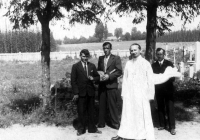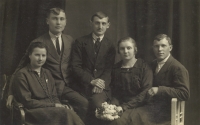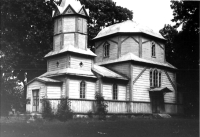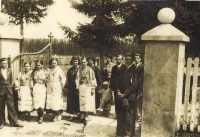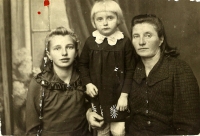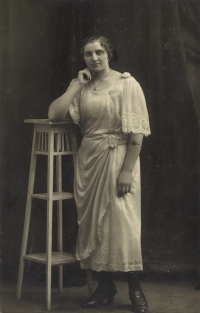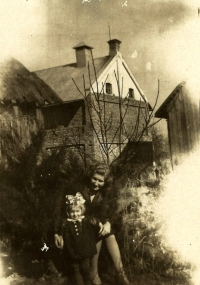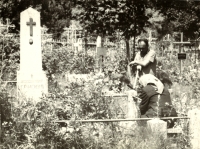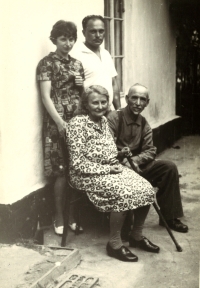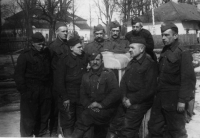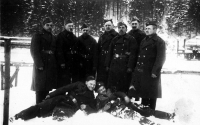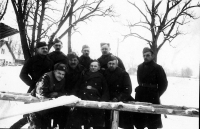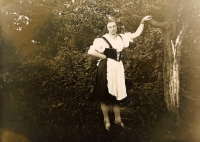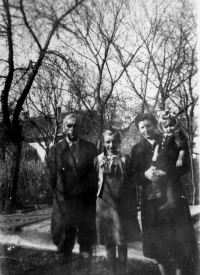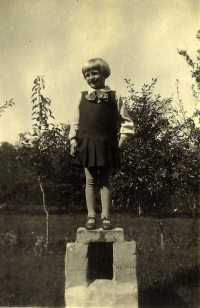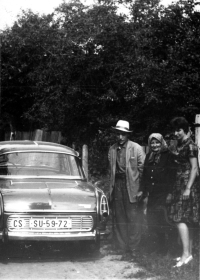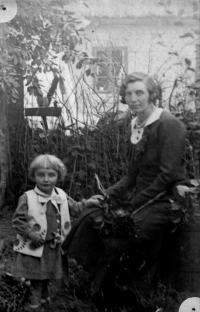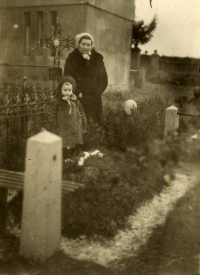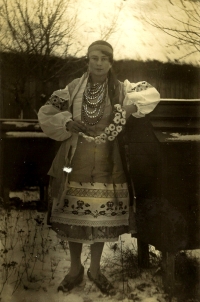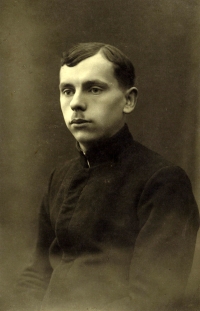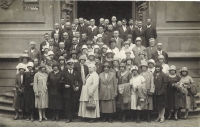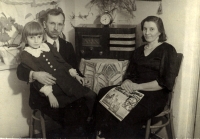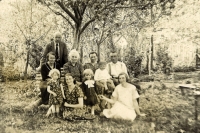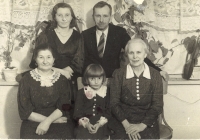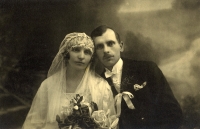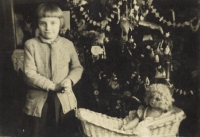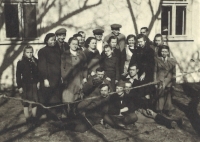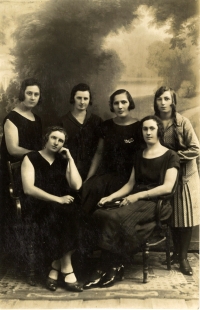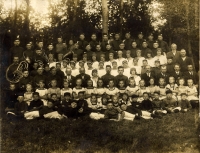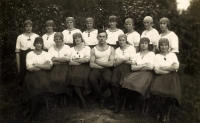Society was not ready for that
Download image
Věra Jenčková was born on 16 November 1940 in Kvasilov in Volhynia (today’s Ukraine) as the younger of two children to her parents Olga and Vladimír Vlach. Her father fought in the ranks of the 1st Czechoslovak Army Corps. He suffered a serious wound and after several months of treatment he died in 1946 in a hospital in Šumperk. In 1947 the family re-emigrated to Czechoslovakia and settled in Šumperk. After primary school, Věra Jenčková graduated from a two-year economics school there. At the age of 16, she became an orphan. In 1956, her mother died of heart failure. Sometime around that time, Věra took a job in the telecommunications office in Šumperk. It was at work that she met Miroslav Jenček, whom she married in 1958, a few months before she came of age. That same year their daughter Věra was born. Her husband came from a family of private farmers from Rapotín, who had to give up their fields during collectivisation and join a cooperative farm (JZD). In 1965, Věra and Miroslav Jenček had a son Pavel, who was diagnosed with Down’s syndrome. Thanks to their steadfast will, their son learned to read and write and ended up not in an institution like many other children, but in the loving care of his parents. Věra Jenčková devoted most of her time to her son, so from 1971 to 1988 she worked from home, sewing work gloves. At the time of the recording in 2023, Věra Jenčková was still living in Šumperk and, with the great contribution of her daughter Věra and her family, she was still taking care of her son Pavel.
